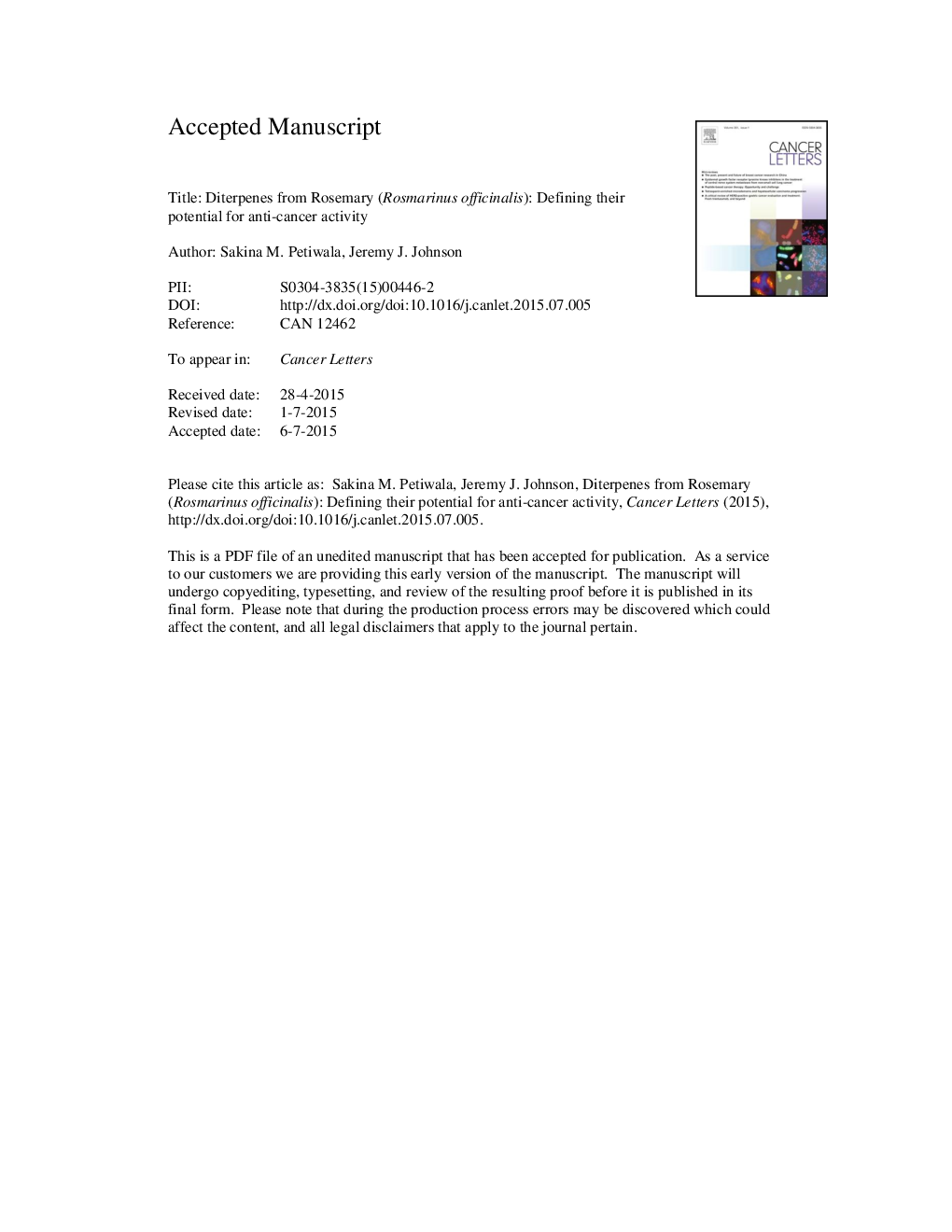| Article ID | Journal | Published Year | Pages | File Type |
|---|---|---|---|---|
| 10899439 | Cancer Letters | 2015 | 34 Pages |
Abstract
Recently, rosemary extracts standardized to diterpenes (e.g. carnosic acid and carnosol) have been approved by the European Union (EU) and given a GRAS (Generally Recognized as Safe) status in the United States by the Food and Drug Administration (FDA). Incorporation of rosemary into our food system and through dietary selection (e.g. Mediterranean Diet) has increased the likelihood of exposure to diterpenes in rosemary. In consideration of this, a more thorough understanding of rosemary diterpenes is needed to understand its potential for a positive impact on human health. Three agents in particular have received the most attention that includes carnosic acid, carnosol, and rosmanol with promising results of anti-cancer activity. These studies have provided evidence of diterpenes to modulate deregulated signaling pathways in different solid and blood cancers. Rosemary extracts and the phytochemicals therein appear to be well tolerated in different animal models as evidenced by the extensive studies performed for approval by the EU and the FDA as an antioxidant food preservative. This mini-review reports on the pre-clinical studies performed with carnosic acid, carnosol, and rosmanol describing their mechanism of action in different cancers.
Related Topics
Life Sciences
Biochemistry, Genetics and Molecular Biology
Cancer Research
Authors
Sakina M. Petiwala, Jeremy J. Johnson,
